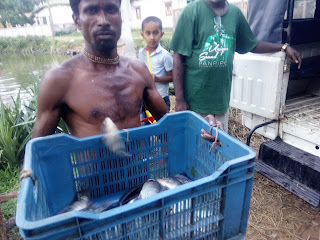The Universal Periodic Review (UPR) is a unique process which
involves a periodic review of the human rights records of all 193 UN Member
States.
Bangladesh was represented by Mr.
Anisul Huq, Minister for Law, Justice and Parliamentary Affairs, who presented
his report on the progress made in recent years and answered the questions of
the delegations.
Several countries acknowledged their
efforts to welcome one million Rohinyas Muslims and keep the borders open to
refugees and displaced people. Also for its fight against poverty and the
promotion of social development (education, health, social security, food) in
recent years. Another noteworthy aspect is the number of women present in
authority roles (the best gender equality in South Asia).
At the same time, they issued
recommendations focused on:
· Guarantee freedom of expression,
especially on the internet, ensuring the right to the opposition, journalists
and human rights defenders to be protected from murder.
· A moratorium on the death penalty
and, finally, its final elimination.
· Strengthen protection measures for
workers. That companies respond for the damage they cause to their health. Improve
working conditions in the textile sector and informal commerce.
· Fight against human trafficking and
trafficking, as a country of origin, destination and transit.
· Access to justice for refugee and
stateless women and girls.
· Continue collaborating so that the
Rohinyas return to their country with security.
· Guarantee living conditions and
regulate the hiring of migrant workers.
· Measures to act against climate
change and continue promoting sustainable development. Access to education,
health, employment.
· Legal protection for ethnic
minorities, indigenous people and fight against religious extremism.
· Access to education and public
services for people with disabilities.
· Fight against discrimination and
harassment against LGBTI people. Decriminalize consensual sexual relations
between adults of the same sex.
· Ratification of international
treaties to which Bangladesh is still not a party: the Optional Protocol of the
Committee against Torture and the Convention on Enforced Disappearances.
The next step is for
Bangladesh to review and decide which of those recommendations it is willing to
accept.












